Global Health Research Seminar Series- Spring 2020.
Join the Global Health Department as we host weekly research seminars open to the SPH community. The speakers are a combination of our own GH Department faculty and staff as well as colleagues and friends of the GH Department. Come hear the work of these researchers who’s impact stretches across the world!
Any questions contact: sphgh@bu.edu
Mondays from 1:00-2:00pm
Room: CT-305
801 Massachusetts Ave.
Due to the COVID-19 pandemic, the Global Health Research Seminar Series will be occurring via Zoom for the remainder of Spring 2020
January 27th, 2020
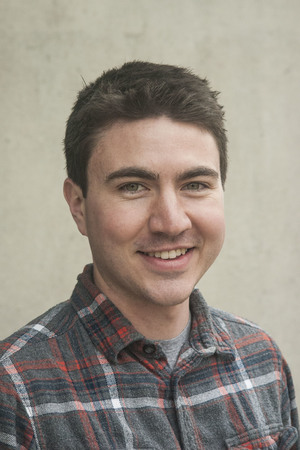
Stephen Kissler, PhD
Postdoctoral Fellow, Harvard School of Public Health, Department of Immunology and Infectious Diseases
Accounting for trends in antibiotic prescribing: better prescribing or less disease
Bio: Stephen Kissler is an applied mathematician interested in how geography and age structure affect the spread of infectious diseases. During his PhD at the University of Cambridge he developed mathematical models to reveal unexpected features of the 2009 A/H1N1 influenza pandemic. Now at the Harvard School of Public Health, he seeks to clarify the relationship between disease, antibiotic prescribing, and antibiotic resistance.
Abstract: In the context of rising rates of antibiotic resistance, reducing antibiotic consumption is a key public health priority. Between 2011 and 2015, the annual antibiotic prescribing rate in Massachusetts declined by 17%, echoing trends across the US. The drivers of this decline have so far been unclear. I will discuss how improvements in antibiotic stewardship and reductions in outpatient visits for key medical conditions each contributed to the decline in antibiotic prescribing in Massachusetts. I will also discuss how rural/urban differences in disease and stewardship contribute to sustained geographic inequalities in prescribing.
February 3rd, 2020

Lauren Etter
Research Assistant, Department of Global Health, BUSPH
Project SEARCH: Scanning EARs for Child Health
February 10th, 2020
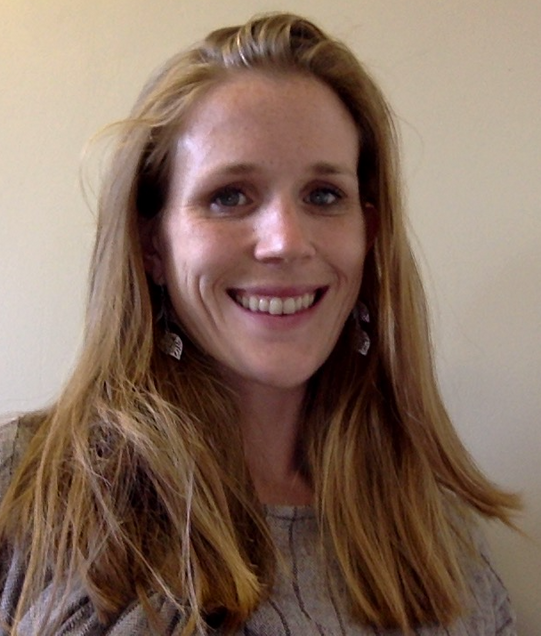
Brooke Nichols, PhD, MSc
Assistant Professor, Department of Global Health, BUSPH
Missing men or a missed opportunity? Frequent clinic attendance and limited HIV testing among men in Malawi: Results of a community-representative survey
Short Description:
Men are underrepresented in HIV testing services across sub-Sahara Africa, and are often diagnosed or initiate treatment late in the course of infection. Optimal strategies to reach men are unclear and have mainly focused on costly community and hotspot testing. Little is known, however, about how often men attend facilities for non-HIV related services, and whether men are subsequently offered HIV testing by providers. This presentation will focus on results of a cross-sectional community-representative survey conducted in Malawi that aimed to assess frequency of facility attendance and HIV testing history among men.
Short Bio:
Brooke Nichols, PhD, MSc, is a health economist and infectious disease mathematical modeler. She holds a Bachelor of Arts from Mount Holyoke College in International Relations, a Master of Science from the University of Massachusetts Amherst in Epidemiology, and a PhD from the Erasmus Medical Center (Rotterdam, the Netherlands) in the economic and infectious disease modelling of HIV prevention strategies. Dr. Nichols’ research experience and interests include modelling and economic evaluation of treatment as prevention (HIV and HCV) and pre-exposure prophylaxis (HIV), HIV drug resistance modelling, geospatial modelling for efficient resource allocation, and translating research into public policy recommendations. Her work has been published in the Lancet Infectious Diseases, Nature, and AIDS, amongst others.
February 17th, 2020
*NO SEMINAR SERIES- PRESIDENTS’ DAY*
February 24th, 2020

Rushdy Ahmad, PhD
President and Co-Founder, True North Bio
Development and Delivery of a Blood Based TB Diagnostic
Short Bio:
Dr. Rushdy Ahmad is currently Co-Founder and President of True North Bio (TNB), a medical device manufacturing and distribution company. Prior to starting TNB in 2018 he was a Senior Research Scientist in the Proteomics and Biomarker Discovery Group at the Broad Institute of MIT and Harvard. Dr. Ahmad’s research over the last 15 years has focused on using mass spectrometry based clinical proteomics to discover novel protein biomarkers to diagnose and understand pathogenesis of various infectious diseases, cancers and neurological disorders. He was the lead scientist on the 5 year long Gates Foundations’ Population Health Metrics Research Consortium Project that was responsible for mass spectrometry based molecular epidemiology of various endemic diseases, such as HIV, TB and Malaria in resource poor settings. Dr. Ahmad recently identified (US Patent Awarded July 2017) a panel of promising host response blood protein biomarkers for adult active Tuberculosis disease and is working with Dr. David Walt, the cofounder of Illumina and Quanterix, to develop a field deployable point-of-care (POC) assay based on these protein candidates. If successful then such an assay would aid TB prevention and control, particularly in resource poor settings. He has extended this type of biomarker research to pediatric TB, various cancers and neurological diseases. Dr. Ahmad has been involved in all aspects of various biomarker discovery projects, including setting up labs and collecting samples from various countries in Africa, Asia and South America, designing protocols, running mass spectrometric and proteomic analysis of samples for biomarker assay development. He received his PhD in Physics from Brown University.
March 2nd, 2020
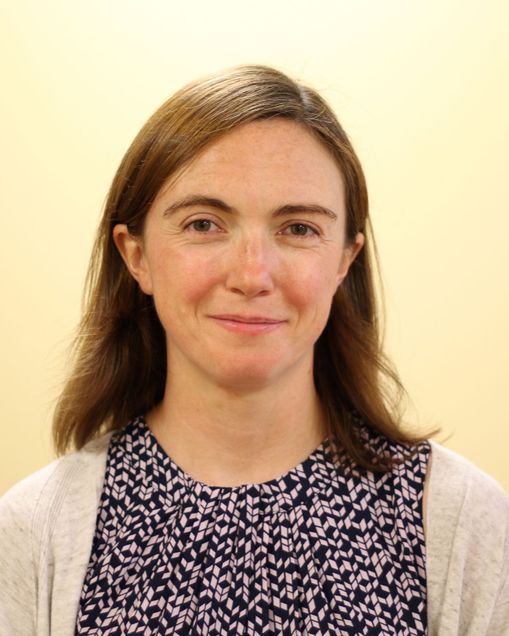
Dr. Helen Jenkins
Assistant Professor, Department of Biostatistics, BUSPH
Using existing data to (1) estimate the burden of tuberculosis in children, (2) evaluate a decentralization of rifampin-resistant tuberculosis care policy in South Africa
Short Bio:
Dr. Jenkins is trained in infectious disease epidemiology and biostatistics. Her research focuses on the gap between true and notified childhood cases of morbidity and mortality due to tuberculosis and geospatial epidemiology of tuberculosis.
March 9th, 2020
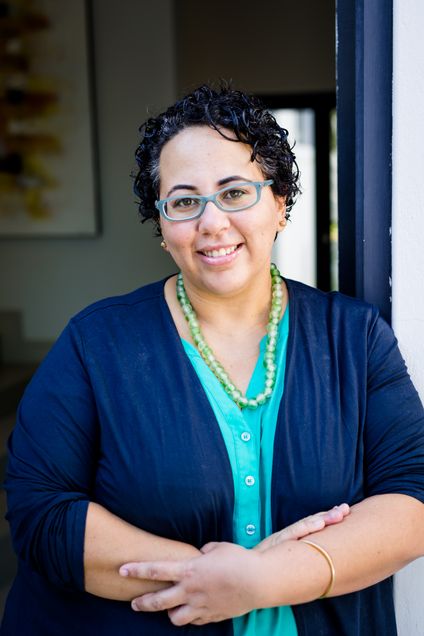
Ribka Berhanu, MD
Instructor, Department of Global Health, BUSPH
Performance of Xpert Ultra in targeted universal testing for tuberculosis in Johannesburg, South Africa
Short Bio:
Ribka Berhanu is an infectious disease physician and TB researcher. She has a joint appointment as an instructor with Boston University and the Health Economics and Epidemiology Research Office, a division of the University of Witwatersrand in Johannesburg. Her research interests include drug-resistant TB outcomes, TB transmission and new TB diagnostics.
March 11th, 2020

Dorina Onoya, PhD, MPH
Principal Researcher, HE2RO
Building the capacity of lay HIV counsellors to improve ART uptake under the 'treat all' policy in South Africa
Short Bio:
Dr. Dorina Onoya is an Epidemiologist and Principal Researcher at the Health Economics and Epidemiology Research Office (HE2RO) in Johannesburg, South Africa. Her research focuses on understanding HIV positive patients’ transition through the HIV treatment cascade as well as developing and evaluating interventions that address health system gaps.
March 16th, 2020
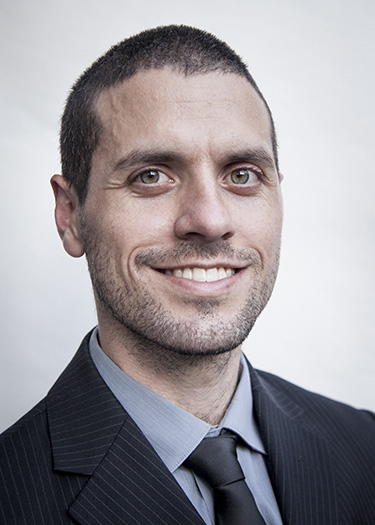
Michael Mina, MD, PhD
Assistant Professor of Epidemiology and of Immunology and Infectious Diseases, Harvard T.H. Chan School of Public Health
Measles, Immune Amnesia, and Why measles is the master childhood infection
Measles vaccines have been linked to extra benefits that reduce childhood mortality. Whether the extra benefits result from non-specific vaccine effects that protect against other infectious diseases, or, alternatively, suggest that measles was associated with much higher mortality than previously thought has remained an open question. This talk will describe new findings surrounding measles induced “immunological amnesia” that erases previously acquired immunological memory, setting children up for increased infectious diseases for years after acute measles infection.
April 6th, 2020


Bruce Larson, PhD and Nafisa Halim, PhD
Research Professor and Research Assistant Professor, Department of Global Health, BUSPH
The Enhanced Mentor Mother Program (EMMA) for the prevention of mother-to-child transmission of HIV in Kenya: preliminary results from a cluster-randomized, (un)controlled clinical trial
Antiretroviral therapy (ART) in HIV-infected women before, during, and after pregnancy is a proven, effective intervention for the prevention-of-mother-to-child-transmission (PMTCT) of HIV. In addition to preventing transmission, ART reduces the severity of the mother’s HIV infection during pregnancy and after delivery (e.g., through viral suppression), which is associated with health outcomes for HIV-exposed but uninfected infants. Existing data suggest, however, that initiation of and retention on ART is less than optimal along the PMTCT cascade of care (CC). The primary objectives of the implementation research study titled the Enhanced Mentor Mother Approach (EMMA) was to: (1) evaluate implementation of routine PMTCT service delivery using the proportion of days covered (PDC) during key periods in PMTCT CC; and (2) evaluate potential benefits of an intervention to adjust priorities of existing peer counselors (called Mentor Mothers) to improve ART coverage. PDC allows ART coverage to be measured consistently across time for both treatment naïve and experienced pregnant women presenting for prenatal care.
April 27th, 2020


Gesine Meyer-Rath, MD, PhD and Brooke Nichols, PhD, MSc
Associate Professors, Department of Global Health, BUSPH
The Known, the Unknown, and the Unknowable: Modelling the COVID-19 curve, cases and budget for the South African government
Short Bio:
Gesine Meyer-Rath, MD, PhD, is a medical doctor and health economist working on the economics of infectious disease interventions in low- and middle-income settings. She is a Boston University associate professor living in Johannesburg, South Africa, where she works at the Health Economics and Epidemiology Research Office (HE2RO), a collaboration between BU and the University of the Witwatersrand. Her focus lies on modeling methods for economic evaluation and translating research into recommendations for public policy. Her talk will summarize very recent findings from her work on the costs and impact of a number of different distribution strategies of HIV self-test kits in South Africa, covering different population groups and locales from the workplace to the clinic to busy taxi ranks.
Brooke Nichols, PhD, MSc, is a health economist and infectious disease mathematical modeler. She holds a Bachelor of Arts from Mount Holyoke College in International Relations, a Master of Science from the University of Massachusetts Amherst in Epidemiology, and a PhD from the Erasmus Medical Center (Rotterdam, the Netherlands) in the economic and infectious disease modelling of HIV prevention strategies. Dr. Nichols’ research experience and interests include modelling and economic evaluation of treatment as prevention (HIV and HCV) and pre-exposure prophylaxis (HIV), HIV drug resistance modelling, geospatial modelling for efficient resource allocation, and translating research into public policy recommendations. Her work has been published in the Lancet Infectious Diseases, Nature, and AIDS, amongst others.
May 11th, 2020

Lerato Magosi, DPhil (Oxon)
Postdoctoral Fellow, Harvard School of Public Health, Department of Epidemiology
Local vs Imported transmission? Dissecting HIV transmission patterns using deep-sequence phylogenetic analyses
The human immunodeficiency virus (HIV), is a virus that attacks the body’s immune system leaving an individual vulnerable to infections (e.g. pneumonia) and certain cancers (e.g AIDS-related Kaposi Sarcoma). Importantly, the end-stage of HIV, acquired immunodeficiency syndrome (AIDS) claims nearly a million lives globally each year, thus, limiting the occurrence of new HIV infections is a major public health concern in infectious disease. There is currently no vaccine or widely administrable cure for HIV, however, one important approach for reducing new HIV infections is through expanded access to HIV testing and anti-retroviral therapy (i.e. ‘Test and Treat’) in order to identify and treat individuals living with HIV thereby reducing their chance of spreading infection. Viral genomes are a useful tool for identifying sub-epidemics and groups of individuals that could be prioritized in order to target interventions where the need is greatest.
In this work, whole genome HIV viral sequences generated through deep (or next generation) sequencing were used to infer HIV networks and sources of transmission in a community-randomized HIV prevention trial – Botswana combination prevention project (BCPP) – evaluating the impact of expanded access to testing and treatment on lowering population-level HIV incidence.
Phylogenetic analyses revealed the size and geographic spread of HIV sub-epidemics in the BCPP trial, as well as, patterns of HIV transmission underpinning sub-epidemics in the communities and trial arms of the study (i.e. local vs imported transmission). Finally, transmission patterns in the study were used to infer transmission flows between communities at the population-level.
Short Bio:
Lerato is a statistical geneticist, she develops and applies statistical and computational methods that use genomic data to study heart disease and investigate infectious disease outbreaks with a view to inform public policy. During her DPhil at Oxford University she developed statistical methods to identify systematic heterogeneity patterns in genetic association meta-analyses that were applied to the CARDIoGRAMplusC4D meta-analysis of coronary disease risk. Currently, at the Harvard School of Public Health, Lerato is investigating HIV transmission patterns to elucidate the impact of treatment as prevention on lowering HIV incidence. Her research expertise includes: development of bioinformatics pipelines, Monte-Carlo simulation, phylogenetics, GWAS (genome-wide association studies) and meta-analyses. Publications of Lerato’s work are available in Plos Genetics, Bioinformatics and others.












